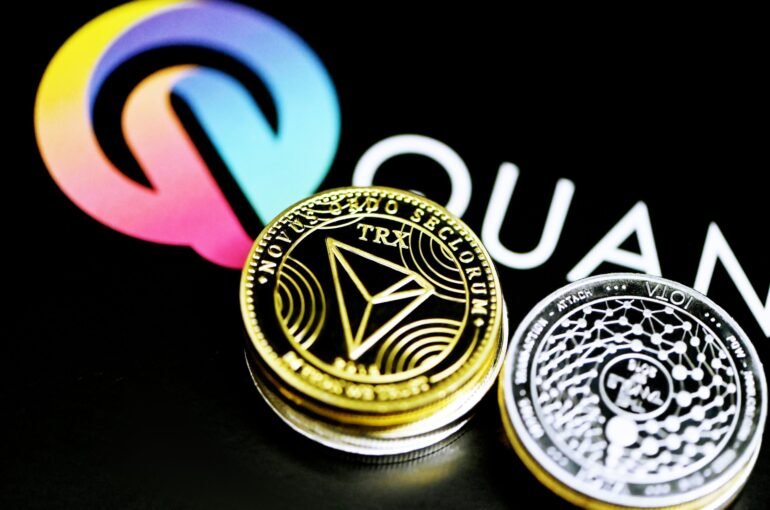Co-founder of Indian cryptocurrency exchange challenges proposed crypto ban
Co-founder of Indian cryptocurrency exchange challenges proposed crypto ban

India-flag Unocoin, one of India’s largest cryptocurrency exchanges, was co-founded by Sunny Ray. He also works as a business development manager at Kraken, a cryptocurrency exchange. This is because Unocoin and other members of the Internet and Mobile Association of India are fighting the Indian Supreme Court right now. The group is challenging India’s central bank, the Reserve Bank of India (RBI).
The Reserve Bank of India (RBI) is calling for a total ban on cryptocurrencies and Bitcoin. Indians would not be able to own cryptocurrency, trade it, or run a business related to cryptocurrency under the ban. Thanks to the cryptocurrency blog coinDCX and the Twitter account Crypto Kanoon, the public can access the case’s day-to-day details and arguments in court.
Ray maintains an optimistic tone throughout the conversation, despite the obvious stresses that can accompany going to the Supreme Court to fight a bill that would severely harm crypto. “Not only Unocoin, but the entire Indian industry is coming together,” Now, people are hearing our side of the story. It’s exciting to look at! More information regarding the Crypto vs. RBI The most recent outcomes of the August case proceedings are summarized below: 8 August 2019, According to the RBI, businesses do not have permission to operate exchanges. This kind of authorization is not required by law.
The following inquiries are sought by the Court: Why are banks even required for cryptocurrencies? Is this ban actually going to have an effect on any businesses? How is Bitcoin handled in other nations? The court requests evidence of answers to the aforementioned questions. The court is read a document from the most recent cryptocurrency Supreme Court hearings in Brazil. 14 August 2019 IAMI makes a statement regarding the significance of banking support.
IAMI counsel contends that there are no studies to support RBI’s proposed ban. In stating that RBI cannot act outside of banking regulations, IAMI reads judgments. Counsel for IAMI argues that cryptocurrency is outside the scope of the RBI Act and the Payment Settlements Act. According to the counsel for IAMI, no other nation prohibits it, and the government legislature, not the RBI, should make any decisions.
The RBI’s turn to make a statement is August 21, 2019. Using the directive from the European Union, the RBI states that anonymity is a major issue. In their court-filed affidavit, RBI cites a number of hacking incidents. Bitcoin is being criticized by a lot of famous people around the world. The Payments Act is read by the RBI in part. The judge states that the act covers exchanges, so the argument is irrelevant.
IAMI’s counsel responds that there is no evidence to support RBI and that RBI is unfairly shifting its position from caution to outright prohibition. It is clear what the two sides are fighting about as more information about the case’s events emerge. The IAMI argues that the best approach is to regulate cryptocurrency without outright banning it and to enact laws similar to those in use in the United States. specifically those in use in Wyoming.
Which will enable cryptocurrency-related businesses to continue operating without jeopardizing the public’s financial or personal well-being. On the other hand, the RBI is basically arguing that cryptocurrency is bad for society and that central and retail banks need to do something to protect consumers from big financial losses. What Comes Next? The judge in the case appears to be hinting that the RBI is indeed out of its jurisdiction and cannot willingly compel crypto businesses to exchange value, and that any attempt to do so should be made through the country’s legislature. His final decision cannot be predicted because the case is still ongoing.
However, like a lot of other cases and hearings happening all over the world, it seems like the more important part of the puzzle is getting society as a whole to understand where Bitcoin fits in the world. There is currently not a single nation in the world that has successfully implemented a ban on cryptocurrencies. Which raises one concern. How will governments prevent private businesses from launching cryptocurrencies? Sunny Ray’s opinion on Facebook Libra makes sense because the struggle between private businesses and the same governments will reveal the true value of digital assets stored on public, democratic blockchains.
Ray doesn’t think Libra will last on its own, but he also thinks that Bitcoin will never get bad press. “It’s exciting that Libra is able to get the President of the United States to tweet about cryptocurrency; hopefully, we can use it as a way to get people interested in Bitcoin. It appears to be a fiat-backed cryptocurrency with none of the benefits of Bitcoin at the moment, which is unfortunate. Ray is correct, and many people concur. Particularly Democratic Congresswoman Maxine Waters, who claims that her concerns about Libra haven’t been alleviated by recent meetings with Switzerland.
Governments, private businesses, and libertarian individuals will need to work together to understand one another as the Bitcoin adoption race continues. Bans on Bitcoin are probably pointless during all of that. That, at least, is what purists hope for. FacebookTwitterGoogle

